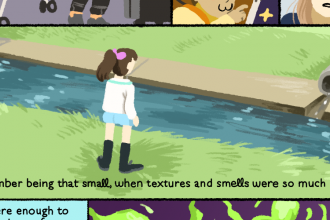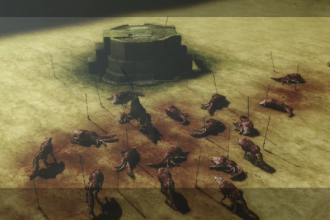June 7th
…Industrial level design views every design problem as a problem of production time, dependent on the ability to scope and plan and manage human labor.
In contrast, local level design views every design problem as a problem of dialog and methodology, it is a “compassionate formalism” that tries to collaborate on conceptual frameworks rather than imposing them. I hope these already existing examples of locally-oriented practice across architecture and level design demonstrate that it is something possible, important, and real.
Also from a past GDC, the good folks at Gamasutra have revived this 2012 design talk by…









